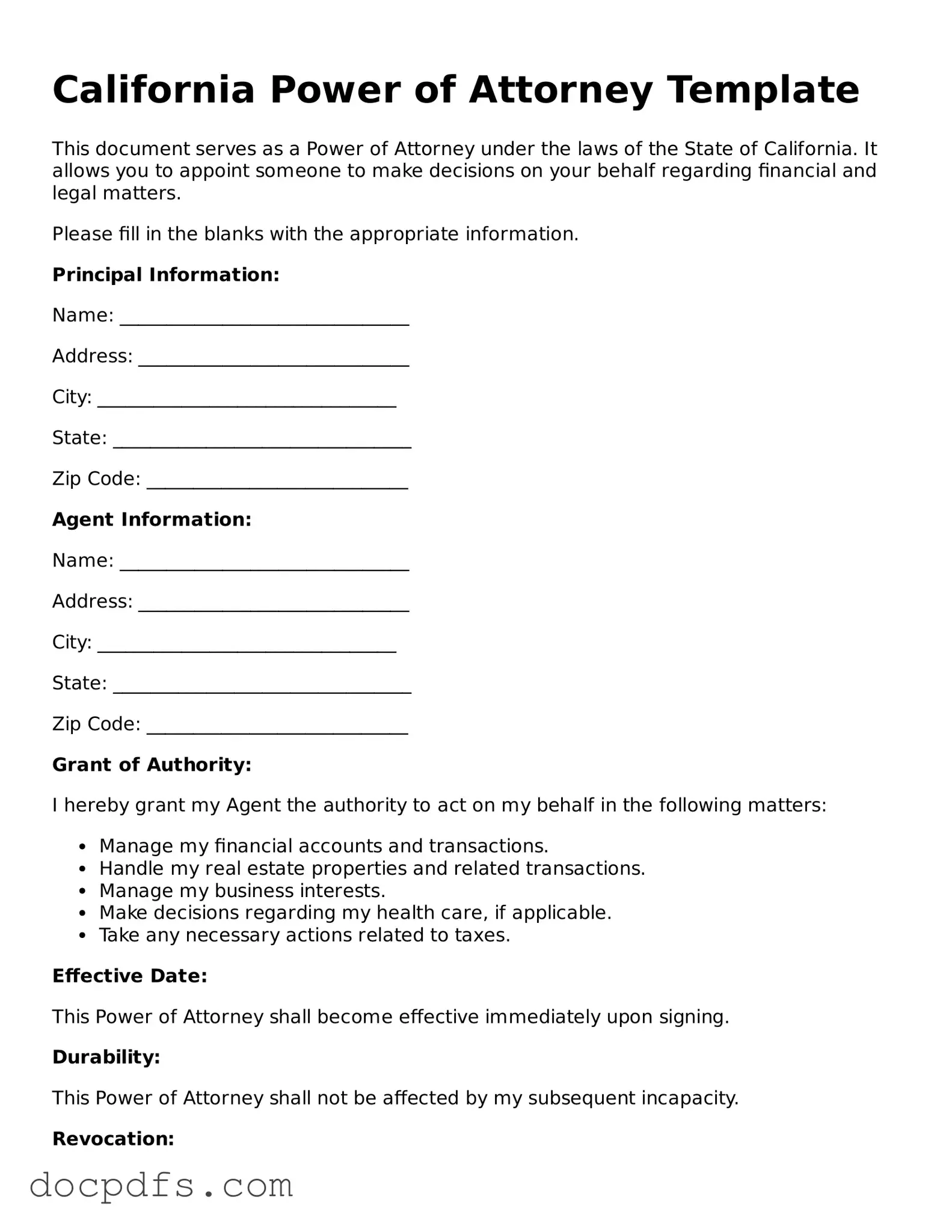Free California Power of Attorney Form
The California Power of Attorney form is a legal document that allows an individual to appoint someone else to manage their financial and legal affairs. This form is essential for ensuring that personal matters are handled according to one's wishes, especially if the individual becomes unable to make decisions. Understanding how this form works can help individuals prepare for the future and protect their interests.
Open Power of Attorney Editor Now

Free California Power of Attorney Form
Open Power of Attorney Editor Now

Open Power of Attorney Editor Now
or
⇓ Power of Attorney
Finish this form the fast way
Complete Power of Attorney online with a smooth editing experience.